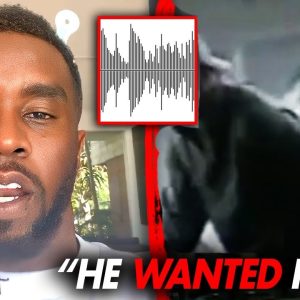BRITAIN’S Got Talent judge Simon Cowell has been slammed by show fans for a “disgusting” habit.
The ITV series’ head honcho, 64 – who swiftly chose his Golden Buzzer act during last night’s episode – was called out for his conduct in-between acts.
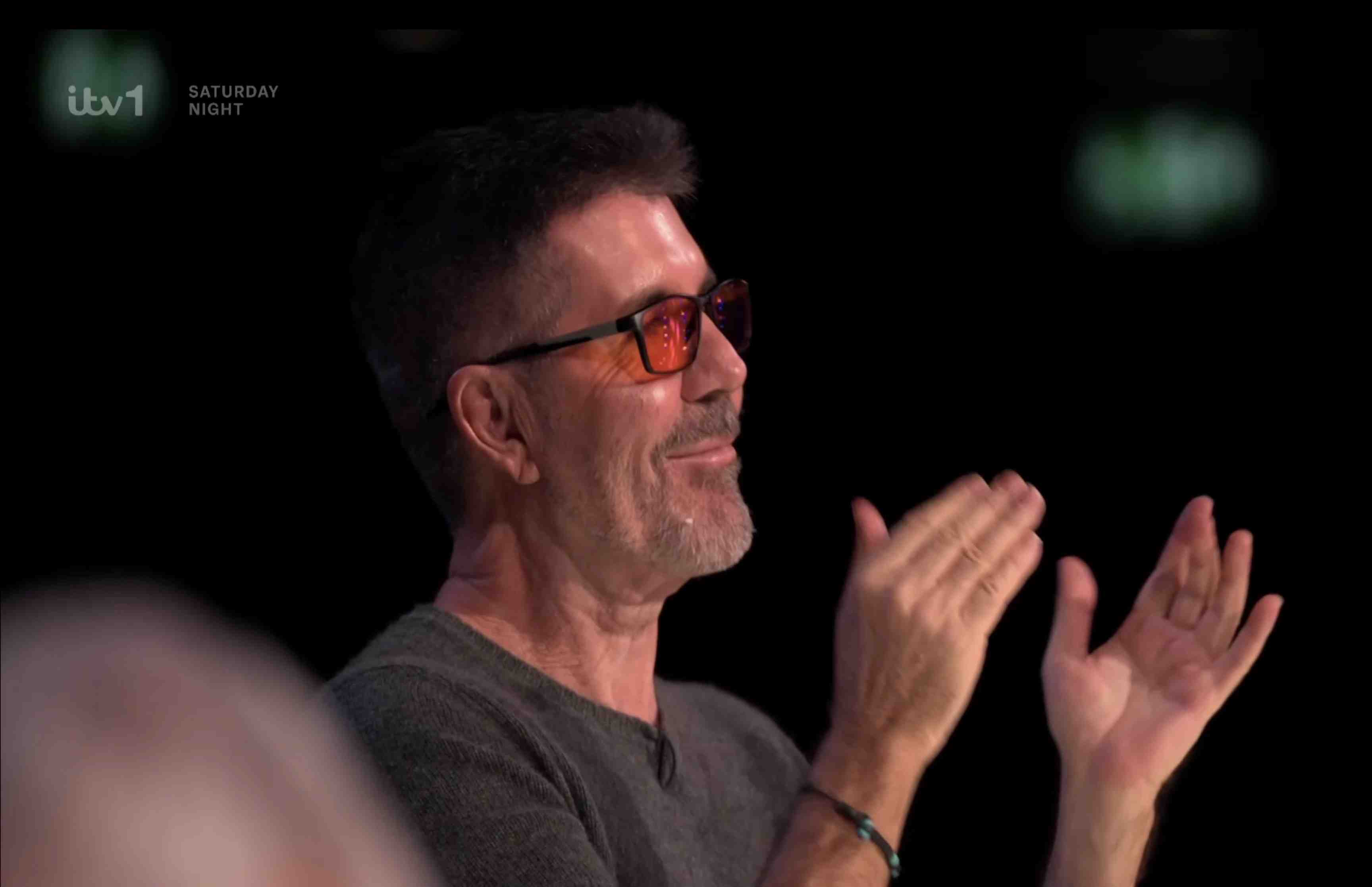
6
Simon Cowell was called out for a ‘disgusting’ habit by angry BGT fansCredit: Eroteme
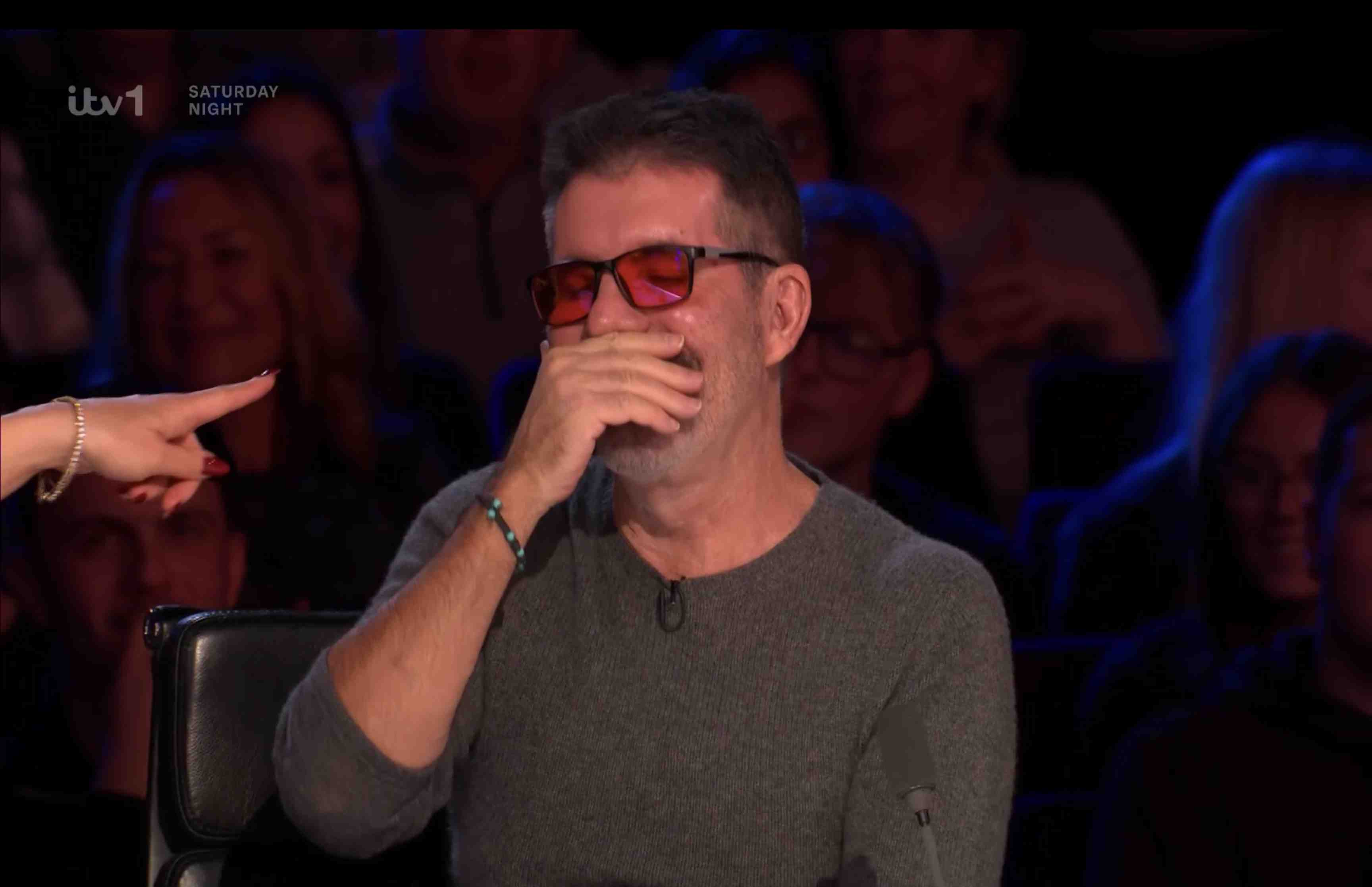
6
They noted how he was ‘talking with his mouth full’ – which led some to brand him ‘unprofessional’Credit: Eroteme
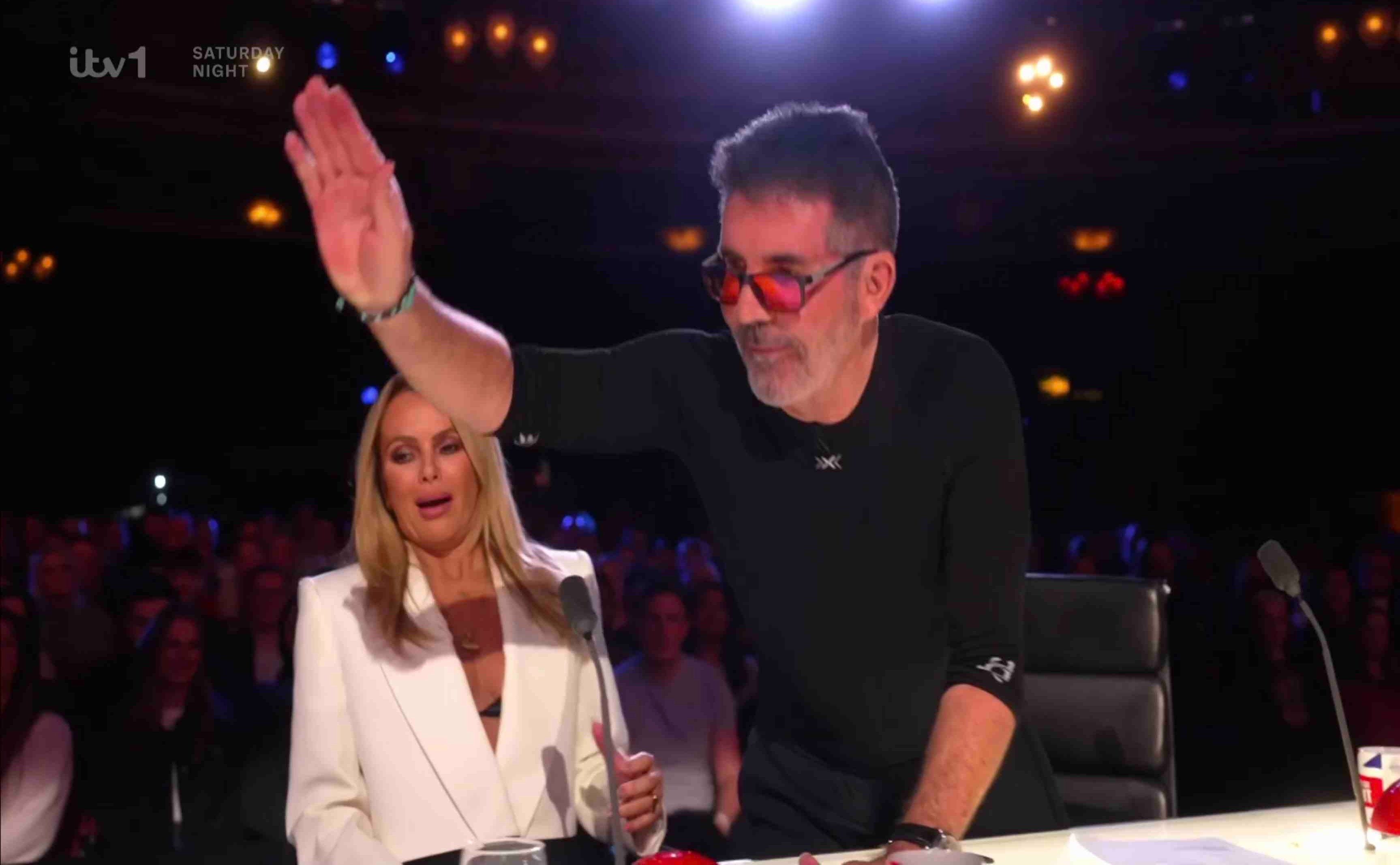
6
Simon caused huge controversy when he selected his Golden Buzzer act last nightCredit: Eroteme
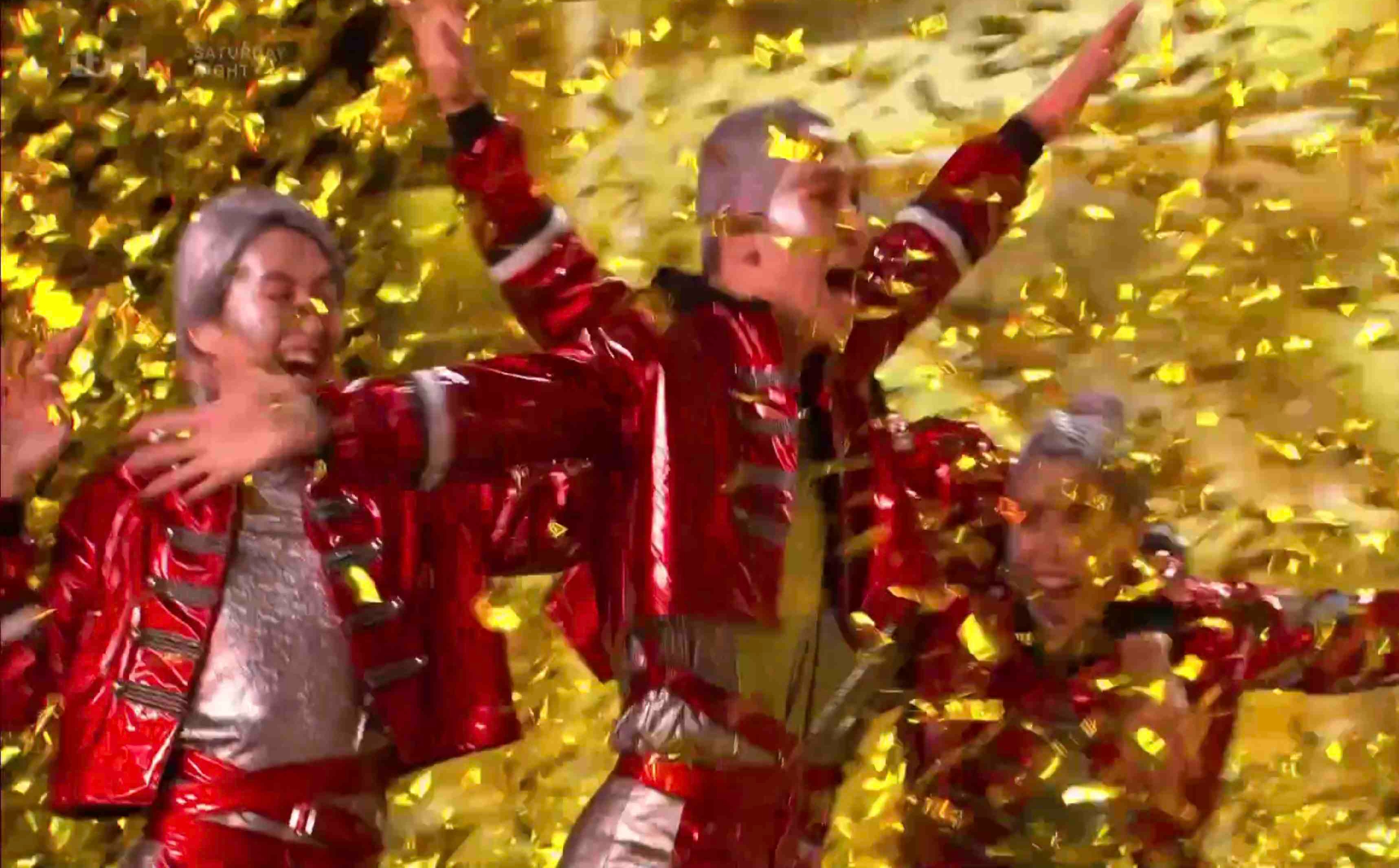
6
Simon opted to send Japanese dance troupe Cyberagent Legit through to the semi finalCredit: Eroteme
Simon was branded “utterly rank” by viewers who had tuned in for the latest Britain’s Got Talent instalment, which even saw one act risk an x-rated wardrobe malfunction.
One took to X to plead with show producers to: “Tell Simon to stop talking with his mouth full!”
They then added the scenes were: “Utterly rank!”
A second mused: “Noticed that too, rude and unprofessional!”
A third commented: “WTF is going on with Simon Cowell’s mouth,” while another wrote: “Close your mouth Simon you look like a goldfish!”
Buzzer backlash
BGT fans were left furious when Simon chose his Golden Buzzer act last night.
It came as he chose to send one of three acts from Japan straight through to the semi final, with many viewers claiming the programme should solely be reserved for those from Britain.
Dance troupe Cyberagent Legit – who unashamedly declared they were huge fans of The X Factor star – performed a routine choreographed to their own original music.
The group, which features dancers aged between 20 and 28, received a “standing ovation” following their performance.
Simon then told them: “Amazing!
BGT air guitarist Sven Smith wears daring outfit for performance
“That was fantastic, that was my favourite act of the day actually.
“Really, really, really good.”
Afterwards a member of the group said: “This is a dream come true for us.”
Britain’s Got Talent winners

Britain’s Got Talent has a gigantic hall of fame when it comes to its winners – from magicians, comedians to dance troops – the show has had it all. Here’s a look back at each winner from each series…
2023 – Viggo Venn
2022 – Axel Blake
2021 – Cancelled by ITV due to the Coronavirus pandemic
2020 – Jon Courtenay
2019 – Colin Thackery
2018 – Lost Voice Guy
2017 – Tokio Myers
2016 – Richard Jones
2015 – Jules O’Dwyer & Matisse
2014 – Collabro
2013 – Attraction
2012 – Ashleigh and Pudsey
2011 – Jai McDowell
2010 – Spelbound
2009 – Diversity
2008 – George Sampson
2007 – Paul Potts
Yet fans were still irked about their heritage.
One person moaned on X: “Did ITV get a group booking for a flight from Japan? Or is this Japan’s got Talent?
“Can Ofcom look at this like the trade descriptions act?! A very misleading name for a TV show!”
Seeing red
BGT regulars last week called out Simon for something completely different.
They noted how he was wearing red-lens glasses behind the judging table, with many divided on whether it was a statement of style of for substance.
In fact Simon, who suffers with photophobia and acute light sensitivity, donned the spectacles to help with his migraines.
Yet Rob Music, chief executive of The Migraine Trust, said: “At the moment, there is not enough high-quality scientific evidence for us to know whether these glasses help people with migraines or not, so we cannot recommend them.”
How is migraine treated?
Often the only way to get rid of a migraine is to take painkillers and sleep it off.
Sufferers normally rest up in a dark room until it has passed – which can be up to 72 hours.
There are many options for migraine that can be tried – some help at the point of migraine and others are preventative.
And there are new treatments coming onto the market that are not just repurposed drugs for other conditions.
Triptans
Triptans reduce the pain and sickness of a migraine attack at the time they are taken.
Naratriptan and frovatriptan usually take longer to reach their maximum effect but their effect lasts longer.
But if a patient’s attacks peak quite quickly, a triptan such as sumatriptan, zolmitriptan, eletriptan or rizatriptan may be more appropriate.
Two doses of any triptan are allowed in 24 hours and they should not be used more than 10 days in a month.
Analgesics
This is medication that treats the pain of a migraine attack at the time they are taken and includes paracetamol and non-steroidal anti-inflammatory drugs (NSAIDs) such as ibuprofen.
Prophylactics
Prophylactics are preventative medicines for migraines taken every day.
Most preventive medications currently available are repurposed from other conditions.
They include:
Angiotensin II blockers (for hypertension)
Anti-convulsants (for epilepsy)
Anti-serotonergic drugs (for depression)
Beta-blockers (for hypertension)
Calcium channel blockers
Tricyclic antidepressants
CGRP monoclonal antibodies (described below)
Botox injections
Botox (botulinum toxin type A) is a type of nerve toxin that paralyses muscles. It was discovered that those who had the cosmetic injections had fewer headaches.
Botox is approved for use on the NHS for the treatment of chronic migraine – at least 15 headache days a month – in adults who have tried other treatments.
Doctors think it works by blocking chemicals called neurotransmitters that carry pain signals from within your brain.
CGRP monoclonal antibodies
Calcitonin gene-related peptide antibodies (CGRP) monoclonal antibodies (mAbs) are a new type of treatment for migraine.
CGRP mAbs are the first preventive medicines specifically developed for the treatment of migraine.
Several are now available on the NHS. This includes erenumab (brand name Aimovig), fremanezumab (Ajovy), galcanezumab (Emgality) and eptinezumab (Vyepti).
The drugs target CGRP, released by the nerves and blood vessels during a migraine attack. It is thought to cause pain.
The new drugs target CGRP to prevent migraine developing.
All of the medicines are taken by injection, either monthly or every few months.
Gepants
Gepants are like the tablet form of the injectable CGRPs antibodies described above.
There are currently three gepants – ubrogepant (not yet on the NHS), atogepant and rimegepant – and others in development. They are CGRP receptor antagonists.
Gepants bind to the CGRP receptors on nerves and block its effects. Gepants (unlike triptans) do not constrict or tighten the blood vessel. They prevent them from dilating.
This makes them safer for people with heart issues and they can be used in people with cardiovascular disease.
Early indications suggests that gepants may be the first acute treatment not associated with medication overuse headache. Due to this, they may also be used as a preventive treatment.
Greater Occipital Nerve (GON) block
There are injections which contain small doses of local anaesthetic and/or steroid which is injected around the greater occipital nerve – which travels up each side of the back of the head.
Evidence suggests a GON block can provide short-term benefit to some people with migraine, reducing how often migraines occur and their severity.
Around one in three people do not see any benefit from a GON block.
Lifestyle measures
If none of these treatments help a patient’s symptoms, or they’re getting worse, a referral to a specialist may be made.
A GP may also recommend making changes to lifestyle to help manage migraines, such as eating at regular times and drinking less caffeine.
These include:
Eat meals at regular times
Exercise
Get plenty of sleep
Manage stress
Drink plenty of water and less alcohol and caffeine
Limit trigger foods, such as spicy food
Sources: NHS and The Migraine Trust
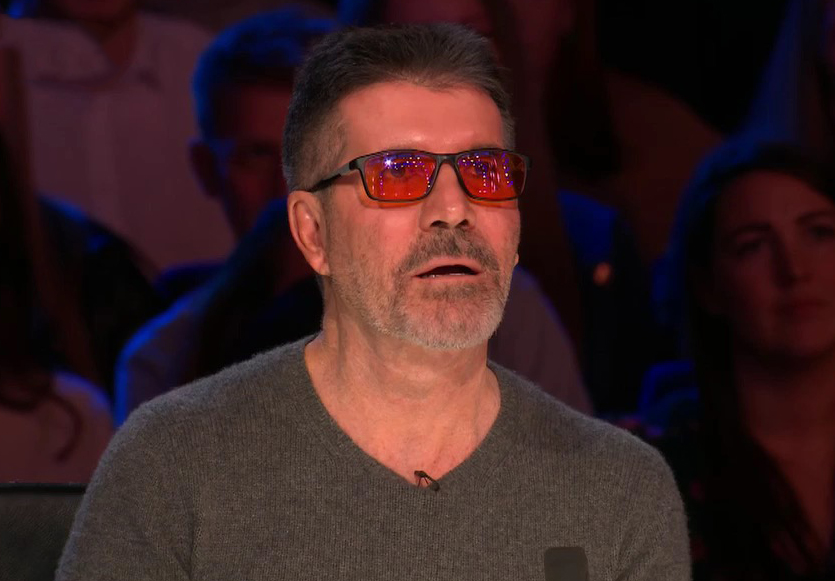
6
Previously fans called out Simon’s red glassesCredit: Pixel8000
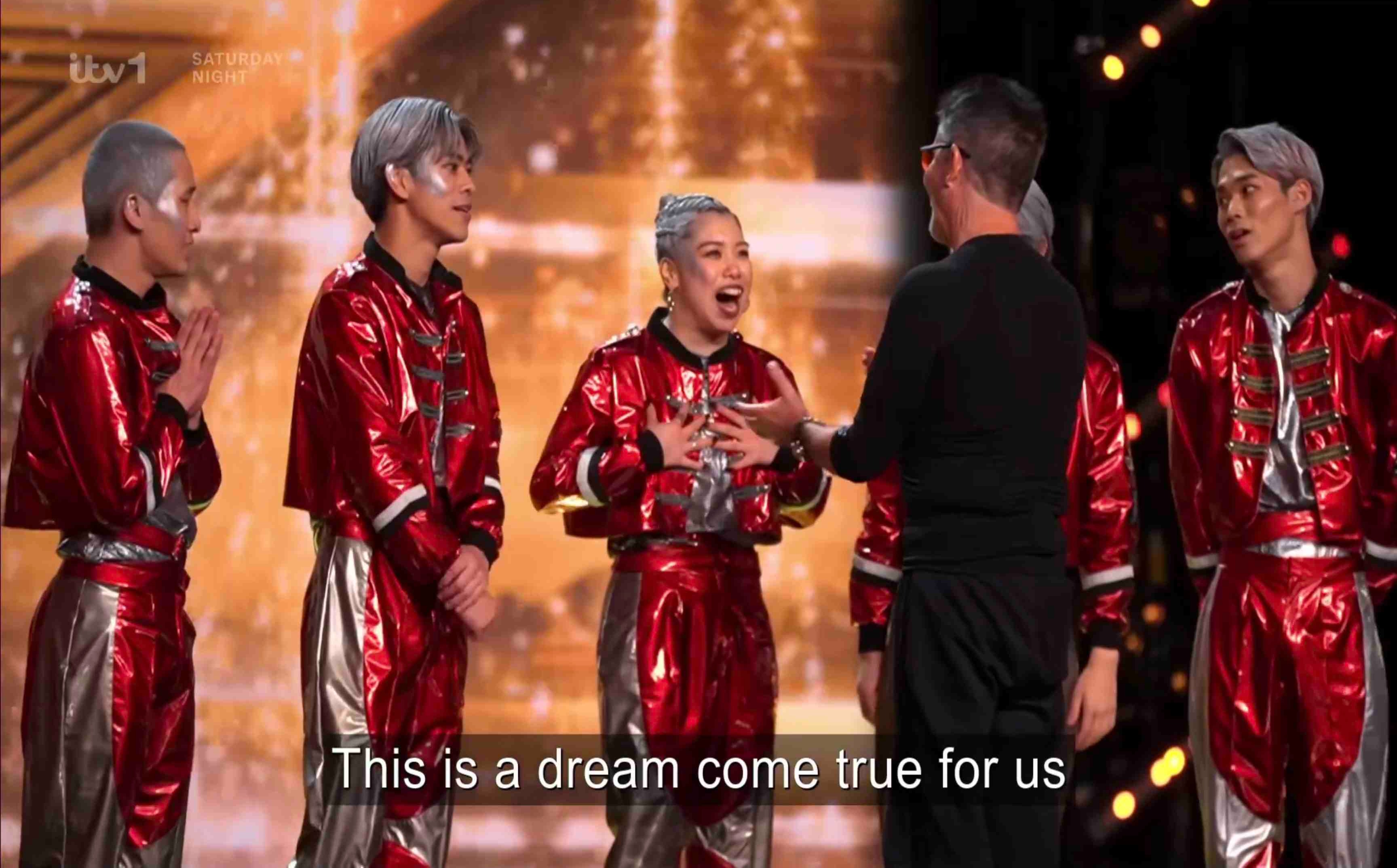
6
Fans threatened to call Ofcom after it was revealed the act is not from BritainCredit: Eroteme

